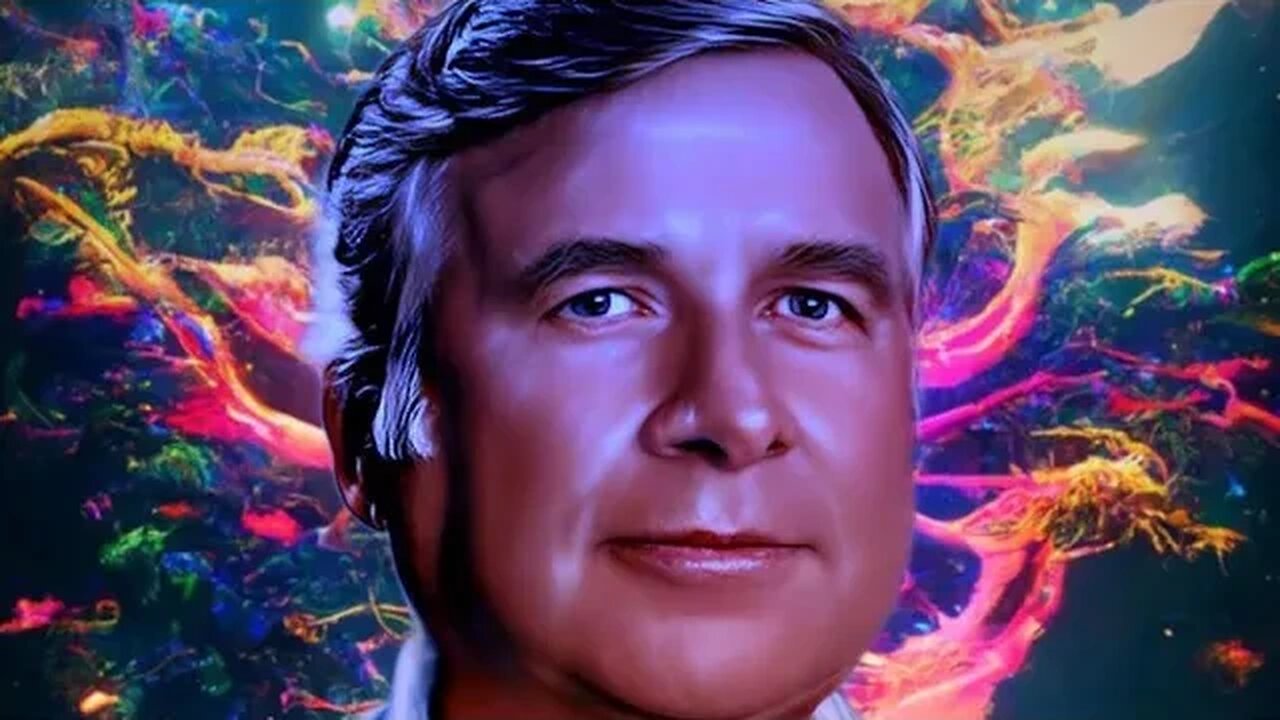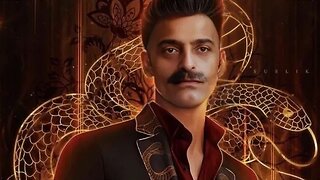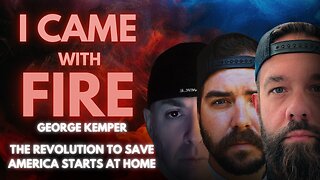Premium Only Content

Gene Roddenberry: The Final Frontier
In September 1987, Star Trek: The Next Generation continued the legend that Gene Roddenberry began 25 years prior. As creator and producer of the original Star Trek television series, he launched a phenomenon without precedent in show business and attained a celebrity status unique among his peers.
Although Gene Roddenberry passed away October 24, 1991, his legacy remains as Star Trek: The Next Generation continues to flourish and grow in movie theaters, and three television series based upon Star Trek — Star Trek: Deep Space Nine, Star Trek: Voyager, and now Enterprise — maintain his vision of the future.
While making Star Trek, Roddenberry's reputation as a futurist began to grow. His papers and lectures earned him high professional regard as a visionary. He spoke on the subject at NASA meetings, the Smithsonian Institution, Library of Congress gatherings, and top universities.
As creator of the beloved Starship Enterprise and its crew, which included the heroic Captain Kirk and the logical Vulcan, Mr. Spock, Roddenberry unwittingly unleashed a phenomenon in which Star Trek enthusiasts became a veritable cult, numbering physicists, aerospace engineers, housewives, senators, children, teachers and intellectuals among its devotees (affectionately known as "Trekkies," and later, "Trekkers"). The show went outside television to win science fiction's coveted Hugo Award and then spawned an animated spin-off, as well as a series of feature films.
Gene Roddenberry led a life as colorful and exciting as almost any high-adventure fiction. He was born in El Paso, Texas, on August 19, 1921, spent his boyhood in Los Angeles, studied three years of policemanship and then transferred his academic interest to aeronautical engineering and qualified for a pilot's license. He volunteered for the U.S. Army Air Corps in the fall of 1941 and was ordered into training as a flying cadet when the United States entered World War II.
Emerging from Kelly Field, Texas, as a Second Lieutenant, Roddenberry was sent to the South Pacific where he entered combat at Guadalcanal, flying B-17 bombers out of the newly-captured Japanese airstrip, which became Henderson Field. He flew missions against enemy strongholds at Bougainville and participated in the Munda invasion. In all, he took part in approximately 89 missions and sorties. He was decorated with the Distinguished Flying Cross and the Air Medal.
While in the South Pacific, he also began to write. He sold stories to flying magazines, and later poetry to publications, including The New York Times. Upon his return from combat, he became a trouble-shooter for the Air Force working out of Washington, D.C., investigating the causes of air crashes. At war's end, he joined Pan American World Airways. During this time, he also studied literature at Columbia University.
It was on a flight from Calcutta that his plane lost two engines and caught fire in mid-air, crashing at night in the Syrian desert. As the senior surviving officer, Roddenberry sent two Englishmen swimming across the Euphrates River in quest of the source of a light he had observed just prior to the crash. Meanwhile, he parleyed with nomads who had come to loot the dead. The Englishmen reached a Syrian military outpost, which sent a small plane to investigate. Roddenberry returned with the small plane to the outpost, where he broadcast a message that was relayed to Pan Am, which sent a stretcher plane to the rescue. Roddenberry later received a Civil Aeronautics commendation for his efforts during and after the crash.
Back in the States, Roddenberry continued flying until he saw television for the first time. Correctly estimating television's future, he realized that the new medium would need writers and decided that Hollywood's film studios would soon dominate the new industry. He acted immediately, left his flying career behind and went to Hollywood, only to find the television industry still in its infancy, with few openings for inexperienced writers. At a friend's suggestion, he joined the Los Angeles Police Department, following in his father's footsteps and gaining experiences which would be valuable to a writer.
Star Trek followed (1966-1969). The first of the two pilots was pronounced "too cerebral" by the network and rejected. Once on the air, however, Star Trek developed a loyal following and has since become the first television series to have an episode preserved in the Smithsonian, where an 11-foot model of the U.S.S. Enterprise is also exhibited on the same floor as the Wright brother's original airplane and Lindbergh's "Spirit of St. Louis."
The legacy of Star Trek, as created by Gene Roddenberry, continues to grow as the newest series, Enterprise, joins Star Trek: Deep Space Nine and Star Trek: Voyager. Star Trek: The Next Generation has evolved into a feature film series, debuting in 1994 with "Star Trek Generations." Roddenberry is often affectionately referred to as the "Great Bird of the Galaxy."
-
 15:17
15:17
Literati
1 year ago $0.03 earnedG.I. Gurdjieff: Know Thyself
175 -
 LIVE
LIVE
Game On!
5 hours agoThe Masters Day 3 LIVE Reaction!
7,626 watching -
 23:14
23:14
CatfishedOnline
1 day agoVictim scammed out of $100,000 for 8 years!
2461 -
 17:30
17:30
Bearing
8 hours agoTHIS is why Men Shouldn’t Compete in Women's Sports 🤣
1.82K43 -
 13:19
13:19
VSOGunChannel
1 day ago $0.04 earnedI've Never Cleaned This Gun
2112 -
 16:19
16:19
DeVory Darkins
21 hours ago $8.88 earnedWoke activist dealt HUGE BLOW after judge approves deportation
14.7K90 -
 9:55
9:55
Russell Brand
1 day agoThis Is Absolutely Shocking...
55.9K76 -
 26:01
26:01
The Brett Cooper Show
2 days ago $3.02 earnedChappell Roan Says All Parents Are Miserable. Is She Right? | Episode 21
13.2K24 -
 1:34:25
1:34:25
Michael Franzese
18 hours agoThey Blame Trump for Everything - But Who’s Really Wrecking the Economy?
44.9K56 -
 1:43:55
1:43:55
I_Came_With_Fire_Podcast
14 hours agoThe REVOLUTION to SAVE AMERICA Starts At HOME
38.1K9